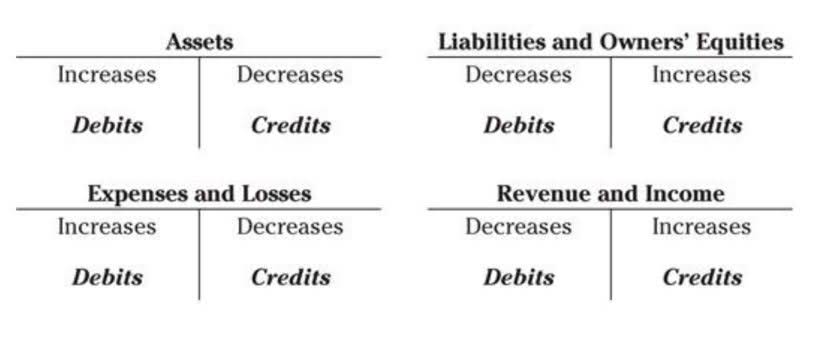
Unlike many traditional firms, online providers aren’t usually restricted by geography, so their services are available anywhere in the US. Since online bookkeeping services charge a flat monthly fee, you know exactly how much you need in your budget each month. Monthly, in-house bookkeepers cost about $5,625, while most outsourced online bookkeeping services are a fraction of this (about $500-$2,500 per month). Outsourcing to an online bookkeeping service, often a cost-effective option, has a set monthly fee that ranges from $500 to $2,500, depending on business size and task complexity. The national median pay rate for a full-time bookkeeper is $47,440 per year or $22.81 per hour.
Overview of Bookkeeping Services

In-house bookkeepers are employees who work full-time or part-time for your business and are responsible for managing all your financial records. Services like tax preparation and financial analysis typically cost more due to the specialized skills required. These tasks often involve a deeper understanding of tax laws and financial metrics, justifying the higher fees. You can use the annual review as an opportunity to sell additional services to existing clients, and also to weed out those ‘vampire clients’. Also bear in mind that the clients for whom cost is the most important driver, will likely only bring you referrals from other price-sensitive businesses. If you keep the clients that value the quality of your work, over the cost, they’ll recommend you based on something other than price and are more useful to keep in your network.
$40 – $100 average hourly rate
- If your freelancer is highly educated and has more certifications, you should expect them to charge more than someone with fewer credentials.
- I often mention that, starting out as a bookkeeper, you can charge $40 per hour to your clients.
- In this guide, we’ll compare pricing models, cost for bookkeeping services, and other factors.
- A monthly package ensures that your business receives consistent financial oversight, with bookkeepers handling reconciliations, reports, and payroll without constantly tracking hours.
- The challenge though, can be persuading your clients to agree to it.
When implementing fixed-fee or value-based billing, it’s easy to under or overestimate the time it will take you to complete a task. Having an open dialogue with clients about this when you’re first signing them can be a good idea to pre-empt adjustments down the line. It allows you to adjust your fees without painting yourself into a corner, which can happen if you https://www.bookstime.com/blog/how-to-start-bookkeeping-business provide quotes to clients when you don’t know the details of their business. For certain jobs, it’s wise to make this fixed-fee model scalable. For example, you might process a certain number of transactions for one cost, but going over that incurs a different fee.
Determining Factors for Average Hourly Rates

Compared to a traditional bookkeeping firm, freelance bookkeepers have lower overhead costs, which can lead to increased profits. Finally, bookkeeper prices can be affected by the frequency at which their services are needed. Depending on a client’s specific needs, bookkeeping services may be required on a monthly, quarterly, weekly, or even daily basis. Whether you’re looking for a bookkeeper position or you’re a manager looking to hire one – clearly experience will be at the forefront of your search. Obviously, bookkeepers recording transactions with more experience often command higher salaries because they have strong expertise and ability to handle complex financial tasks. Experienced bookkeepers can identify discrepancies quickly, ensure compliance with regulations, and provide valuable insights into financial management.
- Factors influencing these variations include the cost of living, competition among bookkeepers, and the local demand for bookkeeping services.
- For example, a freelance bookkeeper located in India or other low-cost countries can charge less for their services compared to an independent bookkeeper in Europe or Canada.
- But don’t worry, there’s an easy way to save money and still get quality bookkeeping services – Wishup!
- To recap, here’s a comparison of the costs for bookkeeping services based on salary, hourly, or monthly rates.
- At some point or another, you may have clients of all sizes—aka small, medium, and large clients.
- During busy months or tax season, you could expect to pay even more.

They already trust you and you already know how their business works. And because you’re giving them a quote prior to starting the work, prospective clients won’t how much do bookkeepers charge per hour be surprised by any hidden costs. In any industry, experience is influential in pricing decisions, and bookkeeping is no different.
- Accounting services often include high-level advisory work like tax planning, tax filing, budgeting, and forecasting.
- The range swings from $18 to $25 per hour, and there’s a lot of room for growth beyond the $25/hour figure.
- Many restrictions bind the corporate sector, particularly in the areas of finance and taxation.
- The bottom line is that your cost will ultimately depend on your business volume.
- Each model has its own benefits and can be tailored to meet specific needs.
- You don’t want to spend hours sorting invoices and tracking expenses.

On the other hand, if your business is project-based with variable bookkeeping needs, hourly billing could save you money in the long run. Others are more complex, like handling all the finances for a small business owner. Because of this, bookkeepers might charge higher rates for tasks that need more skill or expertise. Also, if a bookkeeper offers ongoing services, they might set a different price compared to a one-time job.
